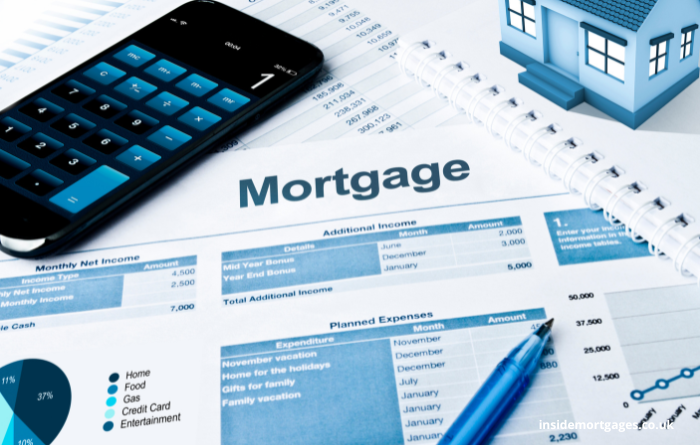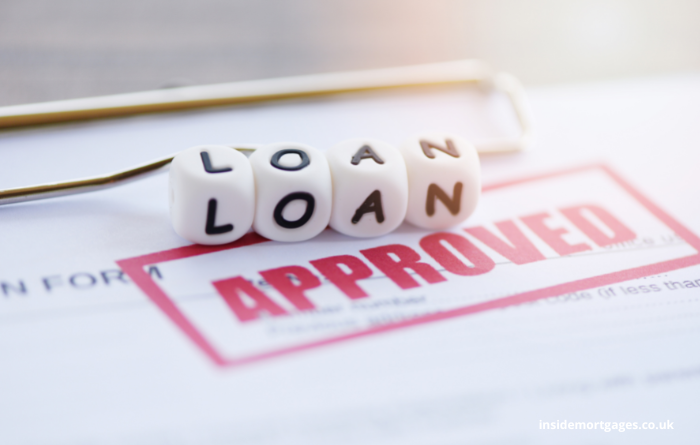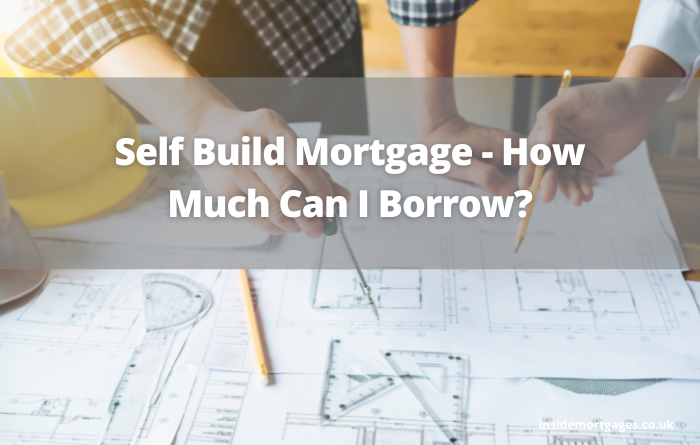Self Build Mortgage How Much Can I Borrow?
Looking into building your own home and want to know how much you can borrow towards the cost? The amount that you can borrow for a self build mortgage will depend on a full assessment of affordability, the property value and the size of your deposit. Broadly speaking it’s usually possible to borrow 4.5 times your annual income or around 75% of the final value of the property you plan to build but you should always take advise from a mortgage broker to find the most suitable self build mortgage product and lender for your individual circumstances.
What Is A Self Build Mortgage?
A self build mortgage is a loan that can be used to help you fund the construction of your own home. Unlike a standard mortgage, which is used to purchase an existing property, a self build mortgage is specifically designed for people who are planning to construct their property from scratch.
Similarities And Differences – Self Build And Regular Mortgages
Self build mortgages work in much the same way as regular mortgages in that a deposit is needed and the borrower must make monthly repayments over a fixed term, typically of 25 years, but there are some key differences to be aware of:
- You can often borrow a larger amount of money than you would with a standard mortgage. This is because the lender will take into account the value of the land as well as the cost of construction when assessing your application. This makes them a good choice for anyone looking to build a home on a sizable plot of land.
- Because the value of the property is based on the future value of the completed home, the amount you can borrow with a self-build mortgage is usually higher than with a standard mortgage.
- Self build mortgages are usually interest-only, meaning that you won’t need to start repaying the capital until the construction work has been completed. This can give you some valuable breathing space during the building process and help to keep your monthly repayments manageable but the interest rate may be higher.
- Some lenders’ criteria are more flexible than others when it comes to self-build mortgages, so it’s always worth shopping around to see who will offer you the best deal or using the professional services of a specialist mortgage advisor who can introduce you to self build mortgage lenders.
- Self build mortgage providers will typically release funds in stages tied to a specific milestone in the construction process. For example, the first disbursement may be made when the foundation is complete, while the second may be made when the framing is finished. The final disbursement is usually made when the home is complete and ready to be occupied.
- You may need to put down a larger deposit for a self-build mortgage than you would for a standard mortgage. This is because lenders view self-build projects as riskier, so they often require a deposit of at least 20%.
Do I Need A Mortgage Advisor For Self Build?

Yes, a specialist mortgage advice is vital in securing the right finance for your self build project. These advisors have in-depth knowledge of the Self Build mortgage market and can offer tailored advice to ensure that you get the most suitable finance for your project.
A good mortgage broker will have access to a wide range of mortgage products. regularly work with self build lenders and customers, and will offer expert guidance on which lender and mortgage is best suited to your circumstances. They can also help with the mortgage application process, ensuring that all the process runs smoothly, the necessary paperwork is in order and that you meet the lender’s criteria.
Can I Use A Mortgage Calculator?
A mortgage calculator can be a useful tool for working out how much you can afford to borrow, in theory but it’s important to remember that this is only a starting point. Your mortgage advisor will take into account several additional factors when assessing your affordability, including your income, outgoing costs and your overall financial situation. They will also be able to give you an idea of what kind of deposit you’ll need to put down and the criteria needed to fulfill your lenders affordability assessment.
So, while a mortgage calculator can give you a ballpark figure for self build affordability, you will need to speak to a professional mortgage advisor too.
Which Lenders Should I Approach?

While many traditional mortgage lenders will shy away from self build mortgages, some specialist lenders are willing to lend money for this purpose. The key is to shop around and compare the different lenders in order to find the best deal.
When applying for a self build mortgage, you’ll need to provide detailed plans and specifications for your proposed build, as well as evidence that you have the necessary skills and experience to complete the project. Once approved, you’ll typically be given a loan which covers the cost of the land, materials and labour.
As self build mortgages are generally not as straightforward as traditional mortgages, it’s important to do your research before committing to one and the best place to start is by speaking to a mortgage broker who specialises in self build mortgages. They’ll be able to help you compare deals and find the right lender for your needs.
Fees To Consider
The professional fees that you will need to budget for when building your own home will vary by property type, size and location but you should expect to factor in the following costs;
- A land surveyor to assess the property.
- Land purchase costs
- Architect or builder to draw up plans for your home
- Planning permission from your local authority.
- Mortgage brokers fee
- Private mortgage insurance (PMI) protects the lender in case you default on your loan.
- Mortgage application fee
- Valuation fee for the property
- Building materials and tradespeople
- Solicitors’ fees covering legal advice and registering the property through the build process
- Insurance to protect you financially if something goes wrong. Consider cover for damage to materials, loss of equipment, and even personal injury.
- Rental costs for a temporary place to stay if not living in your main residence throughout the build
Summary
Self-build mortgages are a unique type of financing that allows you to finance the construction of your own home and are becoming increasingly popular as people look for more control over their living space and the opportunity to create something truly unique.
While the self build mortgage process can be more complex than traditional house purchases, it can also be a great way to get the home you want. The amount you can borrow to fund the project will depend on your lender’s criteria, your savings and deposit amount, income, debts, and the value of your property.
As the amount you can borrow with a self-build mortgage is also heavily based on the future value of the completed home if your plans change or the market value of your home decreases, you may end up owing more money than your property is worth. For this reason, it is important to have a realistic plan for your project and to stay within your budget.
If you’re not sure how much you can afford to borrow or make monthly repayments for a self build mortgage, the best place to start is to speak to a mortgage broker. They will be able to assess your financial situation and advise you on the best way to finance your self-build project to help you make your dream home a reality.
Whilst this article is intended to help you, it does not constitute financial advice and is not a substitute for personalised, professional advice. You should always consult a qualified professional before taking out a mortgage.

